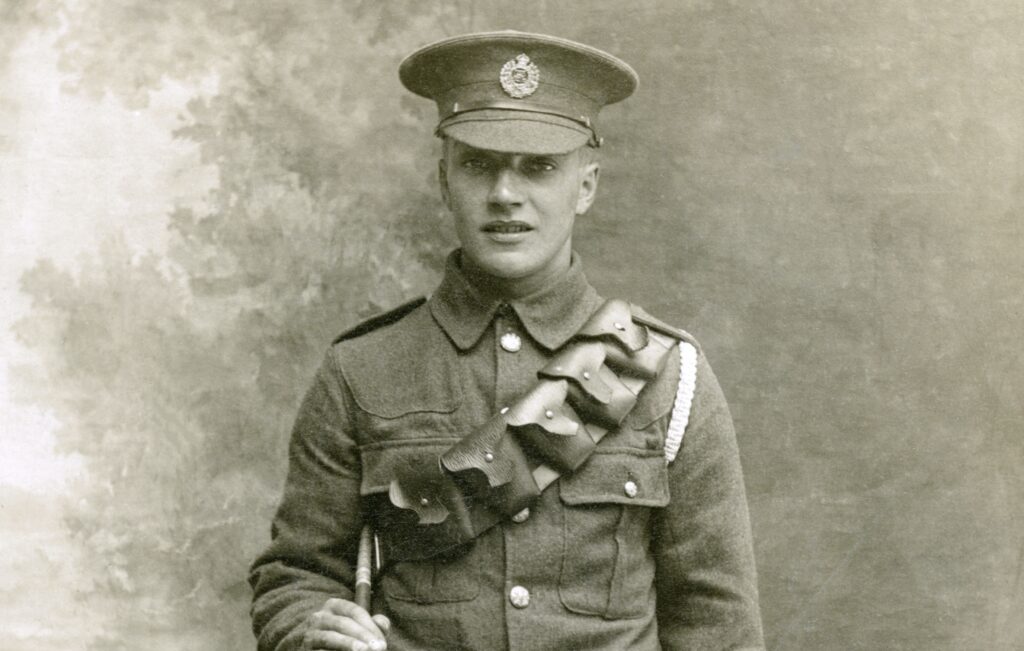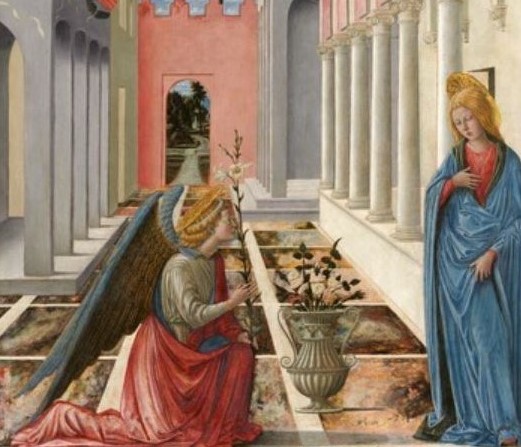
Real men care
Joseph Evans goes back in history to find a surprising model for manhood and argues that concern for the dignity of women is more fundamental to Christianity and all true religion than we might think.
Manhood is in crisis. Every day, in our globally connected world, new cases of men’s abuse of women come to light as women rightly feel ever more emboldened to speak out.
Man stands in the dock, accused. It could sometimes seem that every man is an abuser and one is guilty simply for being male. While such a claim is of course unfair, nor would it be right for us men simply to feel hard done by. We are not the victims. When we abuse women, in whatever way, only we are to blame. Change is needed and if we men sincerely want to maintain that we are not all abusers, we must feel called upon to respond.
But how? And what are we called to do? Recent developments in society make these even more difficult questions to answer.
There was a time when the very physicality of work and war gave men a more dominant role simply for their greater body strength, and hence the role of women was reduced by society to child-bearing and rearing (and even then, only of young children). But times have changed, women seem better suited to many of the modern forms of work, and so men are increasingly asking themselves what role they have to play in this Brave New World we are entering.

Various Adamah articles have spoken up against the abuse suffered by women (like this), the unreasonable demands for physical beauty placed on them (see this), or pointed to the crisis which men are facing today. As one article argued, men are failing in education, socially (through delinquency and toxic forms of masculinity), and sexually.
The malady is relatively easy to diagnose: the crisis of manhood is having a direct and negative effect on women.
What seems harder to find are solutions to the problem.
Speaking as a Christian, I would like to offer a way forward by pointing to a figure who offers a model of masculinity while also excelling in respecting women. Indeed, the latter is a necessary part of the former.
I have in mind St Joseph, the foster-father of Jesus, who this year is being specially honoured by Catholics. Pope Francis, who clearly has great devotion to him, has made this a year of St Joseph in the Church going from December 2020 to December 2021. A beautiful short document of the Pontiff, Patris Corde, also outlines some possible ways to focus on and honour his figure.
Whether one believes in Christianity or not, I think what the gospels tell us about this saint is relevant for all people and particularly for men who are trying to work out what it means to be male in our contemporary world.
It is striking how Joseph enters the gospels. In the very first chapter of the very first book of the New Testament he and we are faced with a woman at great risk. This is no small detail.
The very first page of Christian Scriptures introduces us immediately to the precarious situation of women in the world.
Christianity begins with an awareness of the plight of women, then and now.
The woman is called Mary and she is at risk of being shamed and even potentially killed. We only learn in a later book, the gospel of Luke, what had actually happened to her: the author writes of her miraculous conception of Jesus through direct divine intervention.

The Annunciation by Fra Carnevale – To read more about this painting see Adamah Article Painting the soul.
But in this first gospel, that of Matthew, we – and Joseph – suddenly discover Mary pregnant. “Now the birth of Jesus Christ took place in this way. When his mother Mary had been betrothed to Joseph, before they came together, she was found to be with child of the Holy Spirit.”
With that brief reference to the Holy Spirit, we are given some explanation as to the cause of the pregnancy. Joseph then, with his fellow villagers, would have only seen the bump. To have a child with someone who was not one’s husband or betrothed, if it was not clearly rape, was seen as a form of adultery. And adultery was punishable by stoning. Mary was in grave danger.
Ever since, Christians have asked themselves what Joseph might have been thinking: did he suspect infidelity on Mary’s part (the suspicion theory) or might he have guessed divine intervention (the reverence theory)? The gospels don’t tell us because we do not need to know. What matters is what Joseph did.
“And her husband Joseph, being a righteous man and unwilling to put her to shame, resolved to divorce her quietly.” Whatever Joseph might have thought, his righteousness, his holiness, included a concern not to put Mary to shame.
At the very beginning of Christian revelation, we are taught that holiness includes a concern for the honour of women.
The very first Christian act of righteousness by the very first Christian saint we learn about involves the defence of women’s dignity.

There have indeed been many historical examples of Christianity’s respect for women, including the notion of medieval chivalry and the ideal of the gentleman, which are both profoundly Christian, and above all the tradition of devotion to the Virgin Mary.
But, alas, how little this essential point has been noticed and reflected on. True manhood requires standing up for the dignity of women, where necessary to defend women from danger, disrespect and injustice, whatever their situation might be. Even in his greatest moment of darkness, it did not matter to Joseph whether Mary was guilty or not. His inner sense of righteousness called on him to spare her shame.
When Christian men look lustfully at women (an action which Christ explicitly equated to adultery), be it literally in the flesh or through pornography, they are contradicting the ideal of manhood which lies at the beginning of the whole Christian gospel. They are shaming women, demeaning and objectifying them, if only in their thoughts.
If Christianity is to continue to have a message for the world, it must continue to demand more from men, and to expect from them higher standards of respect and self-control.
It must continue to oppose all forms of shaming women, including through angry words: male anger can be very demeaning to women, given our propensity to aggressive language. Simple courtesy also plays an important role here and with it the gentlemanly concern not to embarrass or humiliate women in the slightest way.
That reference to Joseph acting ‘quietly’ says a lot.

Male anger can cause profound harm and men must fight hard against their inner rage.
Joseph teaches us that we are better men for controlling our anger than for giving into it. There is a strength in self-control, a healthy violence to self which saves us from destructive violence towards others, be it verbal or physical. Strength is also shown in admitting our need for and seeking help, something we men can find very hard to do.
Joseph never speaks in any of the gospels, not a single word. He simply saves and provides without a word of complaint. How much energy we men waste on complaint, and what an unworthy attitude moaning is. St Joseph teaches the inner strength of just taking what life throws at us and struggling silently to find a way forward, in the service of God and those entrusted to our care.
But isn’t many men’s silence precisely what women complain about? Our lack of communication, our failure to respond?
Perhaps the problem is not so much in the scarcity of words as in the lack of empathy and interest. The fact that the gospels show God speaking to Joseph even in his sleep suggests how rich his inner life was. Men’s silence is often the result of falling into the ‘nothing box’, that inner emptiness we are prone to. But Joseph speaks through listening. Women want communication, which will often be expressed in words but should also be manifested in empathetic attention to their concerns.
Joseph then continues to play an ongoing role of protection for Mary and Jesus, her child. He must take them to Egypt to save them from King Herod who wants to kill the baby. He then brings them both back to Israel after Herod’s death.
The gospel of Matthew shows Joseph as very much a protector. This is a healthy instinct in man and saves him from the opposite extreme of being a predator, a mode we can also fall into. Modern woman may feel she doesn’t want protecting but can try to interpret protective actions by men as part of male love language, accepting such gestures as a form of tender loving care even when clumsily expressed. If given the chance to protect, we men can achieve great generosity and heroism in doing so. If denied the chance, we might find ourselves reduced to destructive inactivity.
But the gospel of Luke adds a further nuance, a third way, we could say. Not simply man as protector or predator of woman, but as her partner, a vision which in fact connects powerfully with the Bible’s account of the very beginning of mankind when Adam found in Eve the partner, the equal, he did not find in the animals.

Luke shows Mary making her own decisions, committing her whole life to God alone, without asking the permission of others, and making her own decision to go on a long journey to visit her elderly cousin and deciding herself how long to stay with her. It is almost certain that, in that day and time, Mary did not actually travel alone, but the fact that the Bible simply says that ‘Mary went’ and ‘Mary stayed’, without reference to anyone else, makes the point that she acted by her own free agency.
Even more striking, when Jesus stayed behind in the Jerusalem Temple and his parents found him after three days of anxious searching, it is Mary who speaks, not Joseph. In this sense, Luke is very modern, and so is Mary: Mary is an emancipated woman and Joseph is shown to respect this.
Joseph respects Mary’s sense of purpose and gives her space to lead when she wants to do so. And Mary, in her moments of need, permits Joseph to help and even save her. She thereby allows him to flourish, and even seems to expect this from him, and so brings out the best in him.
How much men are helped by women who point out to them a path of nobility and encourage them to follow it.
Catholic tradition has always believed in Mary’s virginity before, during and after Jesus’ birth, a belief which assumes that Joseph lived with Mary respecting her virginity. This no doubt would have required a whole series of practical arrangements but it would also have involved great virtue on the part of both of them and a whole new approach to their relationship. Above all they would have had to seek non-sexual ways to express their mutual love.
How important this struggle is for men in particular, wired it seems, perhaps even more than women, to desire sexual enjoyment. As I tell people who come to me for advice on living out their relationship, couples often go too quickly to sex out of a lack of imagination. How much we men need to learn, and even try to imagine, non-sexual forms of expressing love.

We also need to repeat often that healthy mantra ‘love not lust’, as both a prayer and an aspiration.
By lust we take, by love we give.
And by loving we become more fully ourselves, more fully a person the more we give.
Our struggle as men also requires a conscious effort to grow in maturity. This is precisely the maturity we see in Joseph who learnt he had to live for Jesus and Mary and not for himself. He also learnt he had to live for a bigger cause than he had ever imagined: Jesus’ mission, described in the Bible as no less than saving mankind from sin.
Too many men want to be eternal children, constantly seeking new kicks through new forms of toys and play, which might be computer games, sport, cars, gadgets, online titillation, or women.
True manhood involves maturity and taking responsibility for others. The lustful person is a psychologically sick child, a stunted tree, who cannot bear the burden of other people’s lives.
Christianity contemplates ever anew the mystery that Joseph taught Jesus how to work. For Christians, this is an extraordinary fact, given that we believe Jesus to be God made man: Joseph taught God to work and God himself wished to work as a man. Hence, the gospels describe Jesus as a craftsman and the son of a craftsman.
Quality work is essential to our dignity and identity as men. The same applies to women too, of course, but we men seem to identify ourselves more by our work and judge our self-worth by our success or not in our professional endeavours.
The life of St Joseph, and particularly that of Jesus, help us to appreciate how much work is integral to our full flowering as men and that a lazy attitude to work will only lead to other problems. A proper job, fulfilling and demanding, has been the salvation of many men.

Leaving the most important to last, we come to what was most essential to St Joseph’s life, even though he only exercised it morally and spiritually and not biologically: his fatherhood.
St Joseph was called to the most challenging task any man has ever faced: to be the father of his own God in human form. Once again, this is a specifically Christian belief which non-Christians will not share but at the very least it teaches us that as much as fatherhood can seem beyond us, as much as we might not seem up to it, every man needs to be a father.
As with Joseph, this paternity need not take physical form. There are spiritual forms of fatherhood, diverse ways to live and take responsibility for others, and I, as a celibate priest, precisely live out one of these. To be a good uncle or loving brother, to take care of the broken needy, can also be forms of spiritual paternity.
But I would go as far as to say that a man who is not in some way a father is an incomplete man.
Joseph could never be a fully adequate father to Jesus – how could any man adequately father God? – but he did what he could and that was good enough. The thought of failing as fathers should not put us off. The only real failure is not to embark on this path.
To be protectors and fathers, respectful equals to women, workers and to teach to work, to live for others not ourselves, doing violence only to our own bad tendencies. Living consciously with the goal never to shame women (or other men), not even verbally. This is a demanding programme but a beautiful one, and one which will lead women to value and want men in their lives and not flee from them as potential abusers.
Like what you’ve read? Consider supporting the work of Adamah by making a donation and help us keep exploring life’s big (and not so big) issues!

